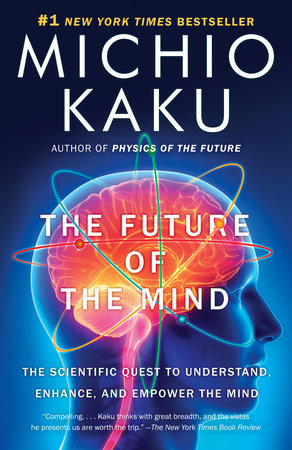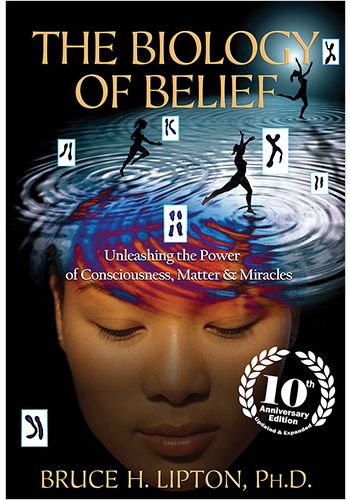Forget what you know or what you think you know about consciousness.
YOU MIGHT ALSO LIKE
CLEAR ALL
BY TOPIC
BY TEACHER
BY TYPE
FILTER

TOPIC
- Altered States (21)
- Self-Healing (16)
- Conscious Evolution (14)
- Mind-Body Connection (14)
- Spiritual Awakening (13)
- Connection with Nature (12)
- Human Potential (12)
- Afterlife (11)
- Near-Death Experience (11)
- Psychology and Spirituality (11)
- Self-Discovery (10)
- Non-Duality (9)
- Perception (9)
- Awareness (8)
- Interdependence (8)
- Spiritual Growth (8)
- Buddhism (7)
- Meditation (7)
- Mysticism (7)
- Psychedelic Research (7)
- Spiritual Life (7)
- Transpersonal Psychology (7)
- Enlightenment (6)
- Epigenetics (6)
- Holism (6)
- Imagination and Creativity (6)
- Inner Life (6)
- Integrative Medicine (6)
- Oneness (6)
- Philosophical Approaches (6)
- Psilocybin (6)
- Self-Development (6)
- Self-Realization (6)
- The Unconscious (6)
- Transformation (6)
- Ayahuasca (5)
- Cognition (5)
- Death and Dying (5)
- Depression (5)
- DMT (5)
- Ego Transcendence (5)
- Energy Healing (5)
- Finding Meaning (5)
- God (5)
- Indigenous Healing Approaches (5)
- Inner Peace (5)
- Plant Spirit Medicine (5)
- Psychedelic-Assisted Therapy (5)
- Self-Care (5)
- Self-Reflection Practices (5)
- The Divine (5)
- Trauma Healing (5)
- Visions and Hallucinations (5)
- Addiction (4)
- Anxiety (4)
- Astral Projection (4)
- Authenticity (4)
- Christianity (4)
- Chronic Health Conditions (4)
- Islam (4)
- LSD (4)
- Other Dimensions and Beings (4)
- Past Lives and Reincarnation (4)
- Psychology (4)
- Religious Experience (4)
- Spiritual Healing (4)
- Tibetan Buddhism (4)
- Wholeness (4)
- Archetypes (3)
- Cognitive Psychology (3)
- Community Healing (3)
- Comparing Belief Traditions (3)
- Dreamwork (3)
- Ecospirituality (3)
- Ego (3)
- Global Challenges (3)
- Holotropic Breathwork (3)
- Intuition (3)
- Judaism (3)
- Living with Illness (3)
- Love (3)
- MDMA (3)
- Naturopathy (3)
- Neuropsychology (3)
- Nutritional Medicine (3)
- Parapsychology (3)
- Physical Health (3)
- Prayer (3)
- Presence (3)
- Search for Purpose (3)
- Self-Love (3)
- Self-Mastery (3)
- Shamanism (3)
- Sound Healing (3)
- Spirituality and Politics (3)
- Transcendent Experience (3)
- Values (3)
- Well-Being (3)
- Yoga (3)
- Addiction Recovery (2)
- Anger (2)
- Black Well-Being (2)
- Communication Skills (2)
- Embodiment (2)
- Emotional and Mental Health (2)
- Facing Own Death (2)
- Faith (2)
- Forest Bathing (2)
- Freedom (2)
- Honoring Emotion (2)
- Identity (2)
- Illness and Injury (2)
- Jungian Analysis (2)
- Lifestyle Medicine (2)
- Mediums (2)
- Memory (2)
- Mindfulness (2)
- Moral Philosophy (2)
- Parenting (2)
- Past Life Regression (2)
- Personal Development (2)
- Psychedelic Journey (2)
- Psychic Abilities (2)
- Ritual (2)
- Romantic Relationships (2)
- Sacred Feminine (2)
- Self-Limiting Beliefs (2)
- Shadow (2)
- Spiritual Crisis (2)
- Spiritual Development (2)
- Spiritual Direction (2)
- Spiritual Practices (2)
- Spirituality and Health (2)
- Subconscious (2)
- Taoism (2)
- Trauma (2)
- Women’s Well-Being (2)
- Acceptance (1)
- Accepting Love (1)
- Activism/Service (1)
- Aging (1)
- Alcohol Addiction (1)
- Anima/Animus (1)
- Awe (1)
- Ayurveda (1)
- Belonging (1)
- Binaural Beats (1)
- BIPOC Well-Being (1)
- Brain Health (1)
- Chakras (1)
- Channeling (1)
- Chanting (1)
- Child’s Trauma (1)
- Chronic Pain (1)
- Cognitive Behavioral Therapy (1)
- Collective Trauma (1)
- Compassion (1)
- Dharma (1)
- Diamond Approach (1)
- Dysfunctional Childhood (1)
- Economic Justice (1)
- Empathy (1)
- Empowerment (1)
- Environmental Exploitation (1)
- Existentialism (1)
- Fellowship and Community (1)
- Functional Medicine (1)
- Gender and Spirituality (1)
- Generational Healing (1)
- Genetics (1)
- Grace (1)
- Growth Mindset (1)
- Guided Meditation (1)
- Habits of Mind (1)
- Handling a Child’s Illness (1)
- Handling a Loved One’s Illness (1)
- Happiness (1)
- Heartmath (1)
- Herbal Supplementation (1)
- Hinduism (1)
- Homeopathy (1)
- Indigenous Well-Being (1)
- Intention (1)
- Intergenerational Trauma (1)
- Joy (1)
- Karma (1)
- Kindness (1)
- Life Challenges (1)
- Life Force Energy (1)
- Loneliness (1)
- Longevity (1)
- Mantra Meditation (1)
- Mental Health Challenges (1)
- Mindfulness Practices (1)
- Native American Beliefs (1)
- Neoshamanism (1)
- Neuroplasticity (1)
- Offering Support to Others (1)
- Passion (1)
- Plant-Based Medicine (1)
- Positive Self-Talk (1)
- Poverty/Economic Inequality (1)
- Problem Solving (1)
- Psychoanalysis (1)
- PTSD (1)
- Racial Healing (1)
- Reiki (1)
- Relationship Challenges (1)
- Relationship with Time (1)
- Reproductive Health (1)
- Resilience (1)
- Self-Actualization (1)
- Self-Esteem (1)
- Self-Reckoning (1)
- Sleep (1)
- Sleep Disorders (1)
- Social Justice (1)
- Social Presence (1)
- Social Psychology (1)
- Soul Mission (1)
- Spiritual Quest (1)
- Stoicism (1)
- Storytelling (1)
- Stress Management (1)
- Suffering (1)
- Sufism (1)
- Sustainability (1)
- Synchronicity (1)
- Telepathy (1)
- The Feldenkrais Method (1)
- Traditional Chinese Medicine (1)
- Unity (1)
- Visualization (1)
- Women’s Rights (1)
FILTER

TEACHER
- Bruce Lipton (4)
- Ilia Delio (4)
- Peter Russell (4)
- Queen Afua (4)
- Rick Strassman (4)
- Robert A. Monroe (4)
- Alison Gopnik (3)
- Anil Seth (3)
- Bernie S. Siegel (3)
- Charles Tart (3)
- David Bohm (3)
- David R. Hawkins (3)
- Eben Alexander (3)
- Fritjof Capra (3)
- J. Krishnamurti (3)
- Judith Blackstone (3)
- Larry Dossey (3)
- Oprah Winfrey (3)
- Ralph Metzner (3)
- Rupert Sheldrake (3)
- Sam Harris (3)
- The Dalai Lama (3)
- Albert Einstein (2)
- Andrew Weil (2)
- Ann Druyan (2)
- Arnold Mindell (2)
- Brian Greene (2)
- Deepak Chopra (2)
- Gary Zukav (2)
- Gregg Braden (2)
- James Oschman (2)
- Jeffrey Mishlove (2)
- Jeremy Narby (2)
- Louise Hay (2)
- Matthieu Ricard (2)
- Michael A. Singer (2)
- Michio Kaku (2)
- Nassim Haramein (2)
- Ram Dass (2)
- Richard Davidson (2)
- Roland Griffiths (2)
- Seyyed Hossein Nasr (2)
- Shefali Tsabary (2)
- A. H. Almaas (1)
- Abram Hoffer (1)
- Albert Hofmann (1)
- Carl Jung (1)
- Daniel Goleman (1)
- David Cooper (1)
- Dennis McKenna (1)
- Diane Stein (1)
- don Miguel Ruiz Jr. (1)
- Eckhart Tolle (1)
- Edgar Mitchell (1)
- Eric Maisel (1)
- Francoise Bourzat (1)
- Frans Stiene (1)
- Gay Hendricks (1)
- Graham Hancock (1)
- Heidi Campbell (1)
- James Carse (1)
- Jane Roberts (1)
- Jaron Lanier (1)
- Jean Houston (1)
- Jeff Foster (1)
- Joan Chittister (1)
- Joanna Macy (1)
- Joe Dispenza (1)
- John Perry (1)
- Jon Kabat-Zinn (1)
- Kabir Helminski (1)
- Karen Johnson (1)
- Krista Tippett (1)
- Light Watkins (1)
- Luisah Teish (1)
- Marc Ian Barasch (1)
- Martha Beck (1)
- Martin Luther King Jr. (1)
- Martin Seligman (1)
- Matthew Fox (1)
- Maya Angelou (1)
- Moshé Feldenkrais (1)
- Oliver Sacks (1)
- Phillip Moffitt (1)
- Rachel Naomi Remen (1)
- Raymond Moody (1)
- Reema Datta (1)
- Rick Doblin (1)
- Robert Thurman (1)
- Rudolph Ballentine (1)
- Russell Brand (1)
- Stephen Levine (1)
- Terence McKenna (1)
- Thomas Hübl (1)
- Timothy Leary (1)
- Yongey Mingyur Rinpoche (1)









